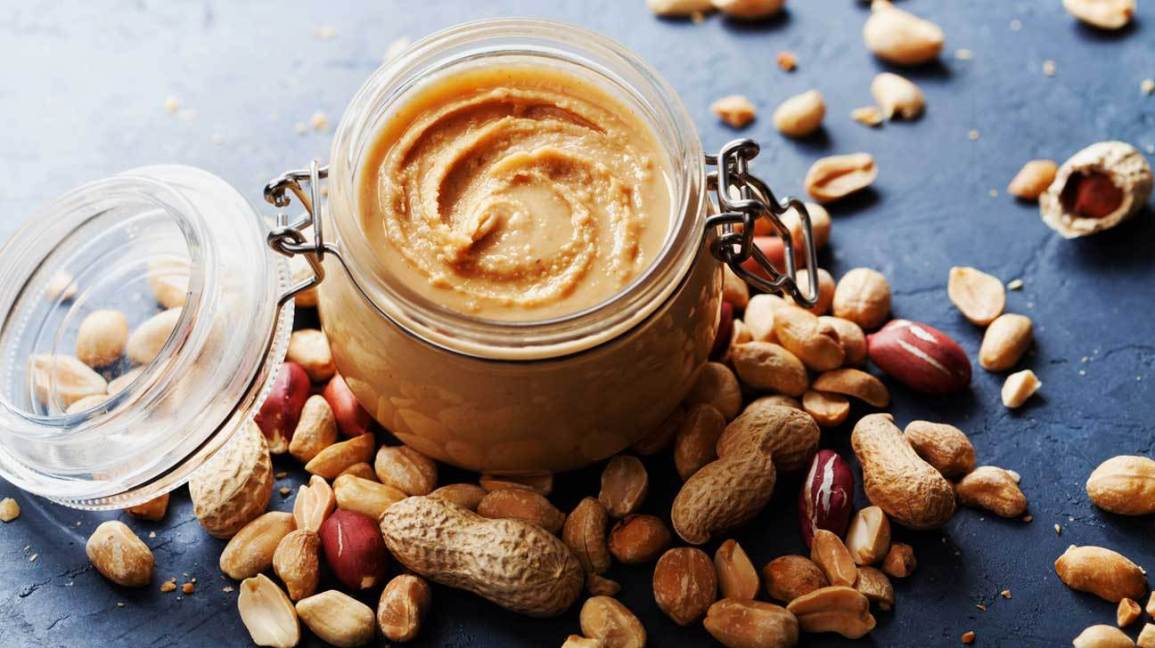Why you need protein for weight loss
For many people, protein is mainly linked to strength athletes and bulging biceps. As a result, it is sometimes forgotten that you can also use a lot of protein as a non-athlete! And that certainly applies to people who are trying to lose weight. Because yes: proteins are also extremely important for weight loss. This is partly due to those muscles, but also to a number of other properties that proteins have. In this blog, we will outline why you need protein for weight loss, and how much protein is approximately the right amount.
What Are Proteins?
Proteins or proteins are also called the building materials of your body. That is certainly no exaggeration. Proteins consist of amino acids, and you use those amino acids to build almost all of your body tissue. In fact, your organs, skin, muscles, hair, and so on, are all made up of different combinations of amino acids.
There are 22 different types of amino acids. Most of these can be produced by your body itself, but you must get eight amino acids through your diet. These are the so-called essential amino acids.
Animal products and soy are ‘complete’ proteins: they contain all these eight essential amino acids. Other plant proteins, such as those in legumes and whole grains, often lack one or two amino acids. However, that does not have to be a problem, because they complement each other. As long as you use at least two different vegetable protein sources in one day, you will be fine.
Weight loss and proteins
It goes without saying that such building blocks are of great importance for your general health. After all, your body can only properly maintain your tissue if you get enough protein. Many hormones and enzymes also consist partly of proteins, so your body’s ‘regulation system’ also suffers if you have a protein deficiency.
But if you want to lose weight, proteins are more important than that. They also help you in all kinds of ways to eat less and lose weight.
Saturate protein
One major reason for this is that your body digests proteins quite slowly. That simply means that your stomach stays full longer if you have eaten a protein-rich meal. The result: your body does not quickly receive the signal that you need more food. As a result, you will not get hungry as quickly. For many people, proteins help reduce snacking between meals. Obviously, that makes weight loss easier!
Moreover, it takes a relatively large amount of energy to break down proteins, compared to the digestion of fats and carbohydrates. As a result, you also burn some calories digesting your food yourself. However, that so-called ‘thermal effect’ is quite small, so do not expect that you will suddenly lose hundreds of kcal extra. But still – every little bit helps
Read more: What is the best protein powder for weight loss
Proteins stabilize your blood sugar
An additional advantage of this slow digestion is that your blood sugar level does not rise sharply by eating protein. Because your food is broken down slowly, the sugars in your meal are also passed on more slowly to your blood. As a result, there is no fast, high peak, but your blood sugar remains more uniform for much longer.
Why is that important? Because, again, your blood sugar has a lot of effect on your hunger. As long as you have enough sugar in your blood, your body has enough energy. But if your blood sugar drops, you need new energy and your body therefore gives the signal that you need to eat. And go, you get hungry again.
Rapidly rising blood sugar is one of the processes that can lead to binge eating. Because after that short, high peak follows a fast, deep trough. That means that you urgently need sugar and therefore often go for the sweet, sugary snacks. A new peak follows, with a new valley. And so you keep eating all day long…
By keeping your blood sugar low, proteins also ensure that you are less hungry and prevent binge eating.
Proteins preserve muscle tissue
And finally, those muscles are really important too! This has to do with the influence of your muscle mass on your fat burning. In short: the more muscle you have, the more calories you consume in a day. Even if you are not exercising. Muscles at rest simply require more energy than fat at rest.
That means that it is very helpful for weight loss to have as much muscle tissue as possible. After all, this is how you keep your metabolism up to speed!
However, it is not easy to maintain muscle tissue during weight loss. When you have a calorie deficit, your body does not only get the extra energy from fat stores. You also break down muscles to release more energy. And with that, your metabolism slows down quickly, you burn fewer calories, and weight loss becomes more difficult.
You can’t completely prevent muscle breakdown, but you can greatly reduce it by eating enough protein. This way your body has access to all the building materials to restore your muscles as much as possible. It’s even better to do some strength training in addition to your diet, so be sure to research that option if you’re serious about losing weight.
Is a protein diet healthy?
Enough reasons to put a lot of protein on the menu, in other words. But is losing weight with a protein diet also a healthy choice?
That’s all depends on how you organize your protein diet. When you fill your plate with fatty meat and full- fat dairy every meal, you are not very healthy. You will get a lot of protein, but also a lot of saturated fat. In large quantities, this is bad for your heart and blood vessels.
Moreover, a one-sided protein diet is unwise because you run a high risk of nutrient deficiencies. Animal products, for example, are low in fiber and certain vitamins and minerals. To stay healthy, it is therefore important that you also include enough other protein sources on your menu.
The Nutrition Center now recommends getting no more than half of your protein from animal products – meat, fish, eggs and dairy. The other half then comes from vegetable protein sources. These are mainly soy, legumes, nuts and whole grains, but some vegetables also provide some protein, for example. Remember to vary this well, so that you keep getting all the amino acids!
If you choose such a protein diet, there is nothing to worry about. You will not only get enough protein, but also enough fiber, vitamins and minerals and healthy fats. So is a protein diet healthy? Yes – provided you continue to make healthy choices, with not too many animal fats and a varied menu.
Lean protein-rich products
To prevent an excess of saturated fats, it is wise to regularly opt for lean proteins. That certainly applies if you want to lose weight, because lean proteins contain relatively few calories.
A few lean proteins that fit well in a healthy diet include:
- Poultry, such as chicken and turkey
- Lean meats, such as roast beef, tenderloin, and lean ground beef
- Lean fish, such as cod and shrimp
- Low-fat dairy, such as low-fat cottage cheese, cottage cheese and Skyr
- Soy products, such as tofu and tempeh
- Legumes, such as chickpeas and lentils
- Vegetables, such as broccoli, leafy greens and cauliflower
Lose weight with protein shakes
Other protein sources that are sometimes mentioned for weight loss are protein shakes. The idea sounds very tempting: you get a large portion of pure protein in one go, without fats or carbohydrates. This way you quickly get a high protein intake. But are shakes really that ideal?
They certainly have advantages: they make it very easy to immediately get a lot of protein after exercise. But there are also disadvantages. Protein shakes, for example, contain fewer vitamins and minerals; if supplements are added, you can often not absorb them properly in your body. The shakes are also less saturated, because they are not solid food.
In principle, it is not necessary for most people to use protein shakes for weight loss. You can get enough protein from your ‘normal’ diet, which is usually healthier and cheaper. If you really exercise a lot, it may be that you need an extremely high amount of protein, and then a shake is sometimes a solution. But you certainly don’t have to take advantage of it if you just want to lose weight.
How many proteins for weight loss?
The question remains: how much of those proteins should you consume if you want to lose weight? The ideal amount depends on your exercise regime. If you don’t exercise, your muscles will endure less. You then need about 0.8 grams of protein per kilogram of body weight. A little more is of course also no problem.
Are you an endurance athlete? Then with 1.2 to 1.5 grams of protein per kilogram of body weight you have enough building blocks to allow your muscles to recover properly after training. When you do strength sports, your muscles are loaded even more intensively. Then 1.6 to 2 grams per kilogram of body weight is a good rule of thumb to stick to.
You can’t really eat too much protein, but if you eat more than 2 grams per kilogram of body weight per day, it will be of no use to you either. Your body cannot use them quickly enough and so just excretes them again. We do not recommend this, because with so much protein you will either eat above your calorie requirement or not leave enough room for fats and carbohydrates. So try not to overdo it unnecessarily.
Use proteins for weight loss
In short: if you want to lose weight, proteins are almost indispensable. They prevent cravings and binges, and ensure that your metabolism continues to work quickly thanks to muscle maintenance. If you opt for healthy proteins, you can benefit enormously from this!
If you don’t have the time to set up an entire nutritional schedule right away, you can still improve your diet by using at least two healthy protein sources in every meal. That can be very simple: think of bread with roast beef or hummus, or yogurt with nuts. That way, your protein intake will be improved.



